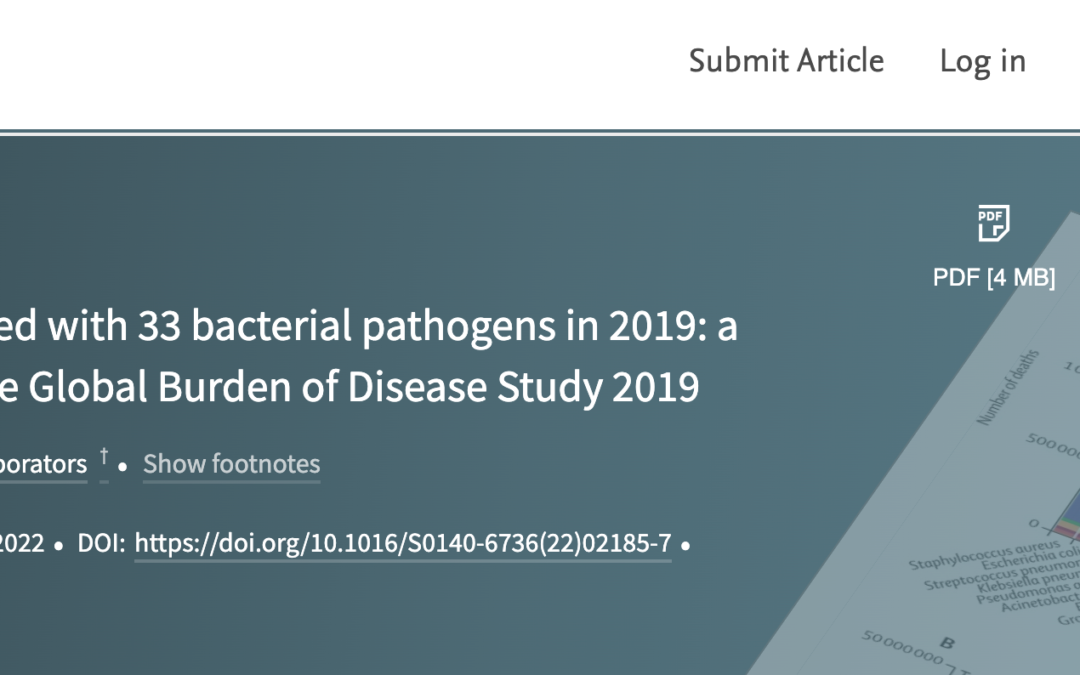On November 21, 2022, a recent IHME paper was published in The Lancet to present the results of an analysis of the burden of antimicrobial resistance (AMR) and bacterial pathogens and its impact on health globally. The work is part of a global initiative, Global Research on Antimicrobial Resistance (GRAM) project – implemented in collaboration with the University of Oxford – that brings together researchers from around the world to develop the evidence base for understanding the threat of antimicrobial resistance as one of the most pressing global health challenges.
Below are the main results of this investigation:
- Early global mortality estimates involving 33 bacterial pathogens and 11 types of infection suggest that these are associated with 7.7 million deaths in 2019.
- Deaths associated with the 33 pathogens accounted for 13.6 percent of all deaths worldwide, with five pathogens – S. aureus, E. coli, S. pneumoniae, K. pneumoniae and P. aeruginosa – responsible for more than half of all bacterial-related deaths.
- Mortality rates associated with bacterial infections were highest in sub-Saharan Africa and lowest in high-income regions, including Western Europe and North America.
- This study may be useful in defining strategies for reducing bacterial infections, including control measures, vaccine development, and increased availability of basic acute care services.
The analysis shows that one in every eight deaths in 2019 is related to bacterial infections, making them the second leading cause of death globally. So far, country-level estimates for parts of the world where people are most affected by bacterial infections have been notably absent. The scientific findings presented in this analysis could be critically important in serving as a guide to help address the disproportionately high burden of antimicrobial resistance around the world, especially in low- and middle-income countries. In addition, more in-depth analysis of the impact of AMR on a country-by-country basis is needed to help allocate resources and guide evidence-based decision making. Antimicrobial resistance (AMR) should be addressed through cross-sectoral, multifaceted and multidisciplinary collaboration. Specific approaches and corrective strategies are needed that lead to improved surveillance of resistant organisms, appropriate use of existing antibiotics, development of new antimicrobial agents, and development of new drugs and vaccines. The goal of this work is to support decision makers, health professional associations, public health institutions, and other relevant organizations working to address this urgent health problem.
For more information click here: https://www.healthdata.org/sites/default/files/files/Pathogens_AMR-deahts_IT.pdf

